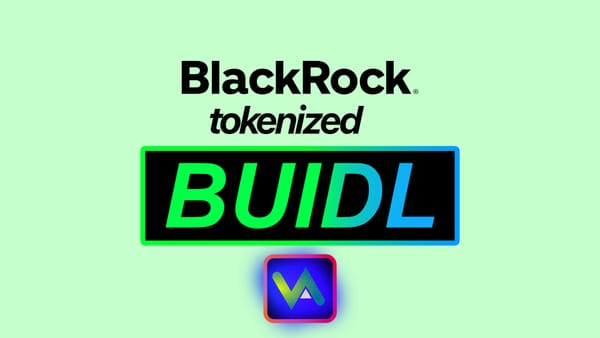
BlackRock's Tokenized Fund: BUIDL
In March 2024, BlackRock filed with the US Securities and Exchange Commission (SEC) to launch its first tokenized fund, the BlackRock USD Institutional Digital Liquidity Fund, also known as BUIDL. The CEO of BlackRock, Larry Fink, has been vocal about the potential of tokenization to revolutionize the financial industry, and the launch of BUIDL represents a big leap towards realizing this vision.
BUIDL is a money market fund that invests in highly liquid assets such as U.S. Treasury bills, repurchase agreements, and cash. The fund leverages blockchain technology to represent ownership through tokens, with each BUIDL token designed to maintain a stable value of $1. These tokens reside on the Ethereum blockchain and are powered by Securitize, a virtual asset securities firm.
The fund aims to provide institutional investors with exposure to tokenized assets while offering the benefits of blockchain technology, such as increased efficiency, transparency, and 24/7 trading. Investors in BUIDL receive daily accrued dividends directly to their wallets in the form of new tokens each month.
Ecosystem Participants and Early Success
BlackRock has partnered with several key players in both the traditional finance and cryptocurrency sectors to launch BUIDL. Securitize acts as the transfer agent and tokenization platform, while Bank of New York Mellon facilitates asset custody and administration. Other ecosystem participants include Anchorage Digital Bank NA, BitGo, Coinbase, and Fireblocks.
Despite its recent launch, BUIDL has already attracted significant interest from investors. The fund secured $245 million within its first week, with major players like Ondo Finance committing a substantial portion of their assets. This early success highlights the growing demand for tokenized investment vehicles among institutional investors.
BlackRock's Vision for Tokenization
BlackRock's move into tokenization aligns with CEO Larry Fink's vision of the future of finance. Fink has previously stated that the tokenization of every financial asset would create a safer and more transparent system for managing a variety of assets, from bonds to stocks.
The launch of BUIDL represents a significant progression in BlackRock's virtual assets strategy. The firm aims to develop solutions that address real problems for clients in the virtual assets space. By embracing tokenization, BlackRock seeks to enhance liquidity, evidence of ownership, and transparency while democratizing access to traditionally illiquid assets.
Implications for the Industry
BlackRock's entry into the tokenization space carries significant weight, given the firm's position as the world's largest asset manager with over $10 trillion in assets under management. The launch of BUIDL will serve as a catalyst for wider adoption of tokenization among institutional investors and traditional financial institutions.
As more Wall Street giants like BlackRock embrace tokenization, the technology will unlock trillions of dollars in currently illiquid assets, making them more accessible to a broader range of investors. This shift will fundamentally transform the investment landscape, creating new opportunities for investors and redefining asset ownership in the digital age.
However, challenges remain, such as regulatory uncertainty and the need for standardization across different blockchain networks. As the tokenization ecosystem evolves, collaboration between financial institutions, technology providers, and regulators will be crucial to address these challenges and ensure the smooth integration of tokenized assets into the existing financial infrastructure.
Will Tokenization Revolutionize Finance?
BlackRock's launch of BUIDL represents a significant milestone in the adoption of tokenization by traditional financial institutions. By leveraging blockchain technology to tokenize a money market fund, BlackRock is demonstrating the potential of this innovative approach to asset management.
As more Wall Street giants follow suit and embrace tokenization, we can expect to see a transformation of the investment landscape. The tokenization of real world assets promises to increase liquidity, reduce costs, and democratize access to previously illiquid investments.
While challenges remain, the growing interest in tokenization among major financial institutions like BlackRock underscores the transformative potential of this technology. As the regulatory landscape evolves and industry standards emerge, the adoption of tokenization will accelerate, unlocking new opportunities for investors and redefining asset ownership in the digital age.